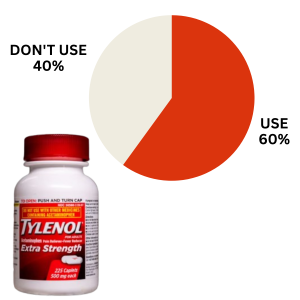On September 22, 2025, President Donald Trump raised fresh controversy Monday when he suggested Tylenol, one of America’s most common pain relievers, could be linked to autism when used by pregnant women. His comments have renewed questions about the safety of acetaminophen, the drug’s active ingredient, despite longstanding medical consensus that it is generally safe during pregnancy.
“The Trump Administration does not believe popping more pills is always the answer for better health,” White House Press Secretary, Karoline Leavitt said. “There is mounting evidence finding a connection between acetaminophen use during pregnancy and autism.”
Acetaminophen, sold under the brand name Tylenol, is widely used to treat pain and reduce fever. For decades it has been considered the safest over-the-counter pain reliever for pregnant women. Still, some studies in recent years have explored whether frequent or long-term use during pregnancy could be associated with neurodevelopmental disorders in children, such as autism spectrum disorder (ASD) and attention deficit hyperactivity disorder (ADHD). A 2025 Icahn School of Medicine at Mount Sinai study coincides with Trump’s claims.
“Our findings show that higher-quality studies are more likely to show a link between prenatal acetaminophen exposure and increased risks of autism and ADHD,” Icahn School of Medicine Assistant Professor Diddier, Prada said. “Given the widespread use of this medication, even a small increase in risk could have major public health implications.”

The American College of Obstetricians and Gynecologists (ACOG) currently state that acetaminophen is safe when taken as directed.
“When considering the use of medication in pregnancy, it’s important to consider all potential risks along with any benefits,” President of ACOG, Steven Fleischman said. “The data from numerous studies have shown that acetaminophen plays an important—and safe—role in the well-being of pregnant women.”
More recently, on September 29, 2025 Chief Physician Executive Officer of CommonSpirit, one of the largest hospital networks in the United States, sent out a memorandum about the issue.
“Well-designed, high quality studies and evidence reviews do not show a direct correlation or a cause-and-effect linkage between acetaminophen use in pregnancy and neurodevelopmental disorders, including autism,” CPEO Thomas McGinn said. “The use of acetaminophen when clinically indicated should be continued. Autism is multifactorial, extensive research indicates there is no single root cause of autism.”
But what do the families of children with autism think? For many, the renewed debate has stirred frustration and concern.
“For the kids who have autism, I feel this has made them feel that autism is a tragedy or that it could have been prevented,” Angela Ertz, special education coordinator, said. “They may not feel as valued.”
This issue shows the tension between scientific research, politics, and the lived experiences of families. While studies continue to examine potential risks, families and advocates stress that discussions about autism should not frame it as a preventable condition, but rather focus on acceptance, inclusion, and meaningful support.
“I think awareness would encourage inclusion in all areas – employment, education, and community activities,” Ertz said. “It would also promote understanding by helping others to effectively communicate support that facilitates social interactions.”
For now, experts urge pregnant women to follow existing medical guidance: use acetaminophen only when necessary, at the lowest effective dose, and under a doctor’s supervision. While Trump’s remarks have reignited debate, scientists stress that more research is needed before drawing conclusions. In the meantime, families and advocates say the focus should remain on supporting those with autism rather than assigning blame.



